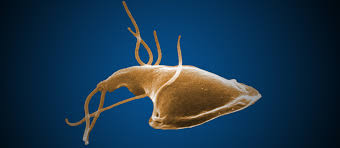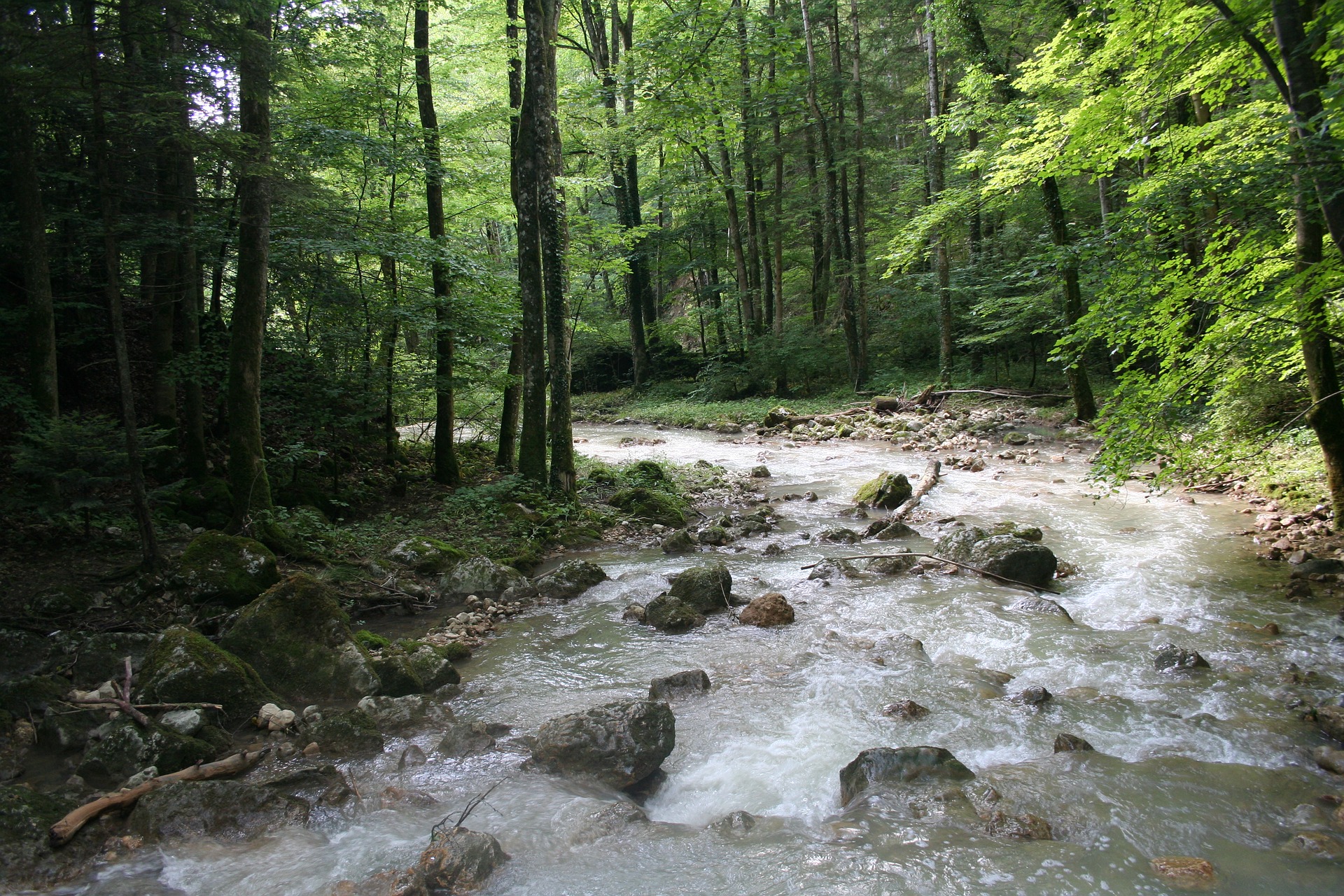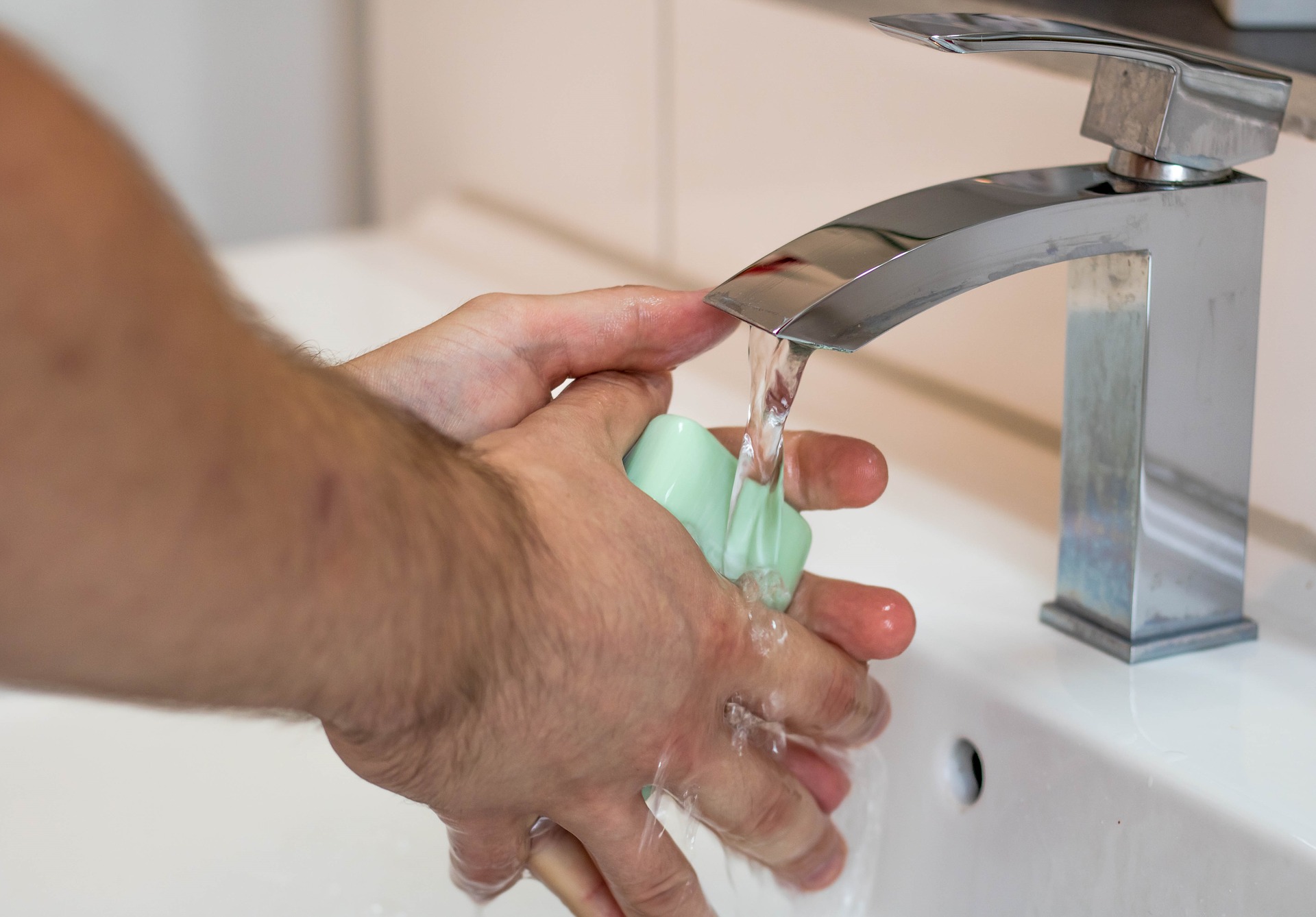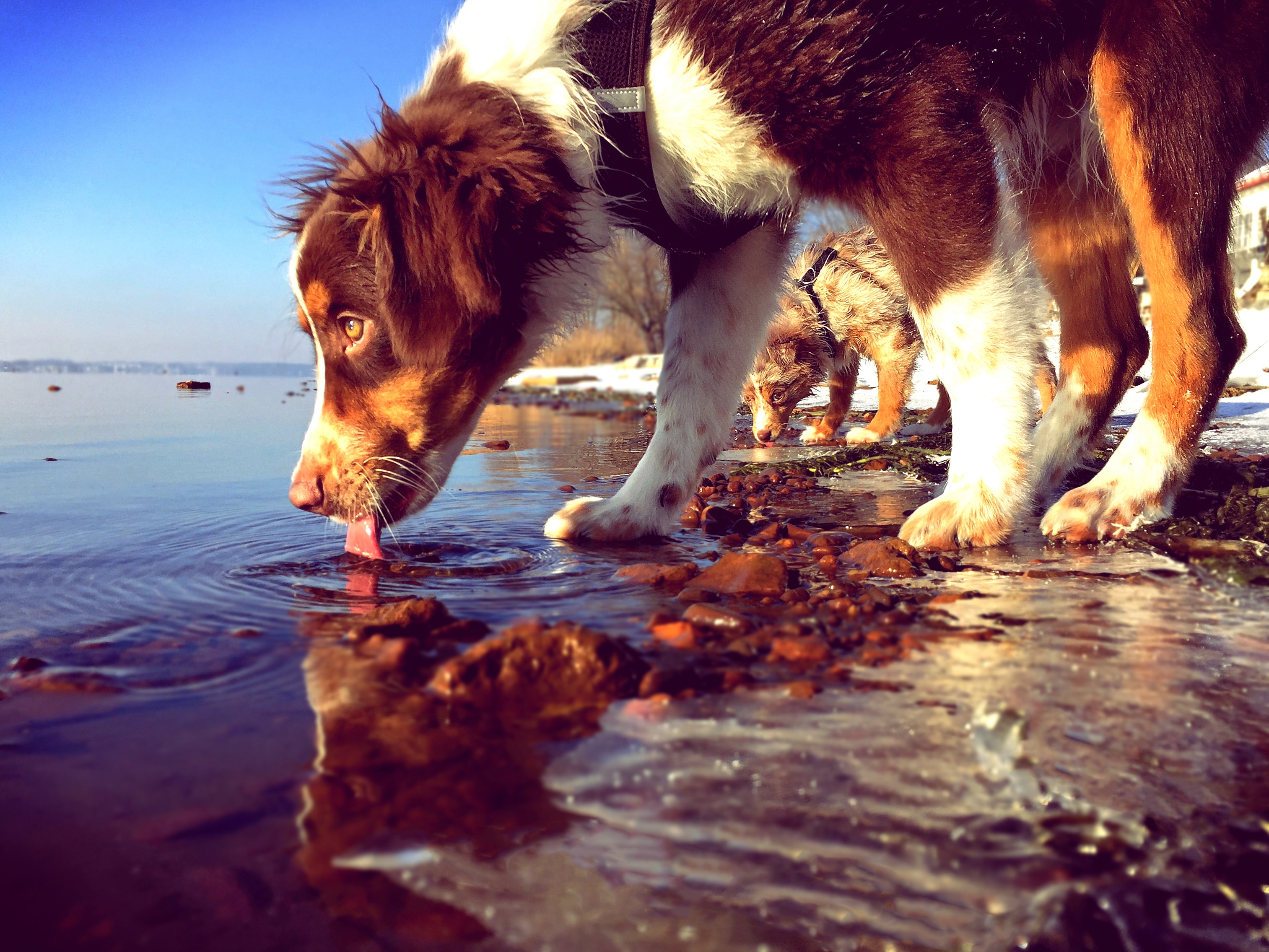DHHS → MeCDC → Disease Surveillance → Epidemiology → Diseases → Giardia
Giardiasis

Giardiasis is a common infectious diarrheal illness reported in Maine that affects humans and pets. Giardiasis is caused by the parasite Giardia. Giardia is protected by an outer shell that allows it to survive outside the body for long periods of time. Giardia is found in soil, water, food and on surfaces contaminated with infected stool. Drinking contaminated water or recreational water is the most common way that people get giardiasis.
On this page
Spread of Giardiasis
Giardia lives in the gut of infected humans or animals, which can pass it in their stool. People get sick when they swallow the parasite. Giardia can spread by:
- Drinking contaminated water or ice including untreated or improperly treated water from lakes, streams, or wells
- Swallowing contaminated water while swimming or playing in lakes, rivers, springs, ponds, and streams
- Swallowing Giardia left on surfaces that contain feces of an infected person or animal such as:
- Bathroom handles
- Changing tables
- Diaper pails
- Toys
- Eating uncooked food that contains Giardia organisms
- Traveling to countries where giardiasis is common
Signs and Symptoms of Giardiasis
Giardia can cause a variety of intestinal symptoms. See a healthcare provider if you have symptoms of giardiasis. Symptoms include:
- Diarrhea
- Gas or flatulence
- Greasy stool that can float
- Stomach or abdominal cramps
- Upset stomach or nausea
- Dehydration (loss of fluids)
These symptoms may also lead to weight loss. Other less common symptoms include itchy skin, hives, and swelling of the joints or eyes. Sometimes the symptoms seem to get better, only to come back again after several days or weeks. Some people with giardiasis do not have symptoms.
Diagnosis and Treatment for Giardiasis
Your healthcare provider will ask you to submit a stool sample to see if you are infected. Testing is difficult, so you may need to submit several stool samples over several days.
Drugs can be used to treat giardiasis.
Prevention of Giardiasis
The following steps can lower your chance of getting and spreading Giardia:
- Always wash your hands after using the toilet, changing diapers, and before handling food.
- Always wash your hands after touching animals and animal waste.
- Do not swallow water while swimming or playing in recreational water.
- Use uncontaminated water to wash fruit and vegetables and peel them after if you plan to eat them raw.
- When traveling in developing countries, do not drink water unless it is boiled and avoid ice cubes.
- When traveling in countries with poor food and water treatment, avoid eating raw or undercooked foods.
- Prevent contact and contamination with stool during sex.
Giardia and Pets
Your dog or cat can become infected when they swallow the parasite.
Your dog or cat can get infected by:
- Being in contact with infected stool from another cat or dog
- Rolling and playing in contaminated soil
- Licking its body after contact with a contaminated surface like a dirty litter box or dog crate
- Drinking water from a contaminated water source
Resources for the Public
- Giardiasis fact sheet (PDF)
- Giardiasis Surveillance Reports 2011 | 2012 | 2013 | 2014 | 2015 | 2016 | 2017 | 2018 | 2019 | 2020 | 2021 | 2022 | 2023 (PDF)
- Maine CDC Healthy Swimming Website
- Federal CDC Giardia Website

- Federal CDC Zoonotic Diseases Website


